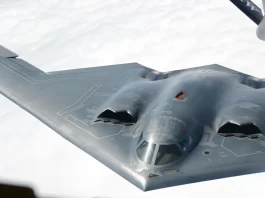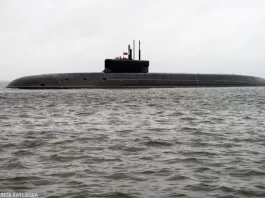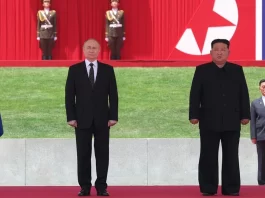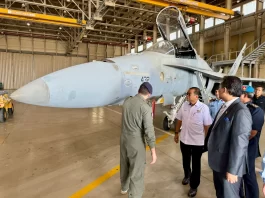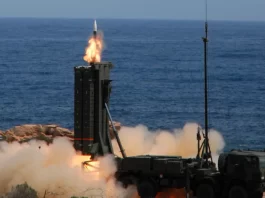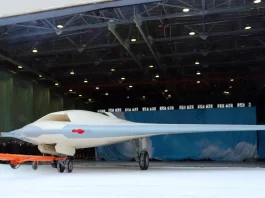“No matter what happens,” the United States Navy is operating forward in the Indo-Pacific region, which is where Washington’s “foremost priority” rests, said the newly appointed head of naval operations (CNO) of the United States of America on Friday, highlighting the United States’ focus on the Indo-Pacific region.
Adm. Lisa Franchetti made the remarks amid persistent worries that the United States’ strategic focus on the region would diminish in light of the conflict between Israel and the Hamas militant group and Russia’s protracted war against Ukraine. It was on November 2 when she took command.
Franchetti stated in an online press meeting that she was in Busan, located 320 kilometres southeast of Seoul, as part of her trip to the region. She stated that this region continues to be the paramount priority for the United States of America, which is why the United States Navy continues to deploy and operate in the Indo-Pacific region, regardless of what is happening worldwide.
An admiral observed that the national security strategy of the United States of America instructs the Department of Defence to take “urgent” action to maintain and expand deterrence in the Indo-Pacific region and to do so in conjunction with the United States’ allies and fellow partners.
Throughout all of her engagements, the shared commitment to a free and open Indo-Pacific region has been a consistent theme that has been present. Specifically, she stated that the United States alliances are the foundation for the peace and security of this region, as well as how the rules-based international order is maintained.
Franchetti stated that the United States Navy is training, exercising, and cooperating with regional allies to become not only interoperable with them but also “interchangeable” in situations where it is possible to do so. This statement emphasised the United States’ pursuit of stronger collaboration with regional allies.
According to her, the United States’ allies must be completely incorporated into US strategy and operations.
After being asked when the plan to operationalise a trilateral system for the real-time exchange of North Korean missile warning data will be implemented, the admiral did not provide a direct answer. South Korea, the United States of America, and Japan are implementing the plan.
She stated that she was extremely enthusiastic about the possibilities for multilateral cooperation, particularly trilateral cooperation in this region, and she is looking forward to formulating a strategy to improve further the trilateral cooperation that is already taking place.
The “global” coverage of the United States Navy was emphasised by Franchetti, who touched on the remaining worries of whether or not the United States is capable of handling various security problems in the region and beyond.
She stated that the United States of America is properly positioned to function and operate efficiently in all parts of the world.
She stated that as the Chief Naval Officer, she prioritises sending the United States’ most advanced capabilities there along with the most highly trained individuals. She is confident in the 7th Fleet’s capacity to deter and operate freely alongside United States partners, and she is certain that they will always be prepared to respond to anything that comes their way.
Her reference was to the United States Seventh Fleet, headquartered in Yokosuka, Japan. The Fleet possesses significant naval capabilities, making it the largest forward-deployed United States fleet. Among these capabilities is the nuclear-powered aircraft carrier known as the USS Ronald Reagan (CVN 76).
The admiral reiterated the fundamental viewpoint of the United States of America while addressing China’s increasing aggression in the South China Sea.
As it relates to China’s recent provocations and dangerous manoeuvres against American planes and ships operating in the South China Sea, she stated that the United States is dedicated to protecting the rights of all nations to fly, sail, and operate safely and responsibly wherever international law permits.
Particularly noteworthy was Franchetti’s observation that no member of the world community should be subjected to intimidation or coercion to give up their rights and freedoms.

